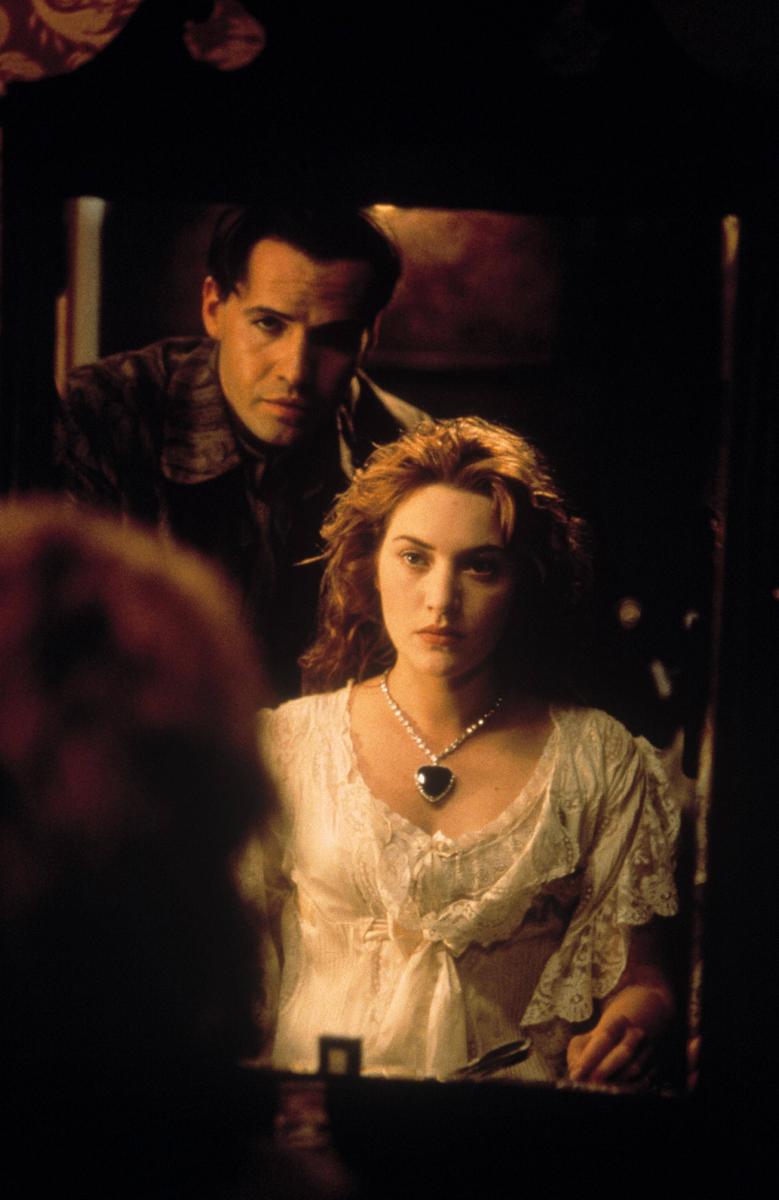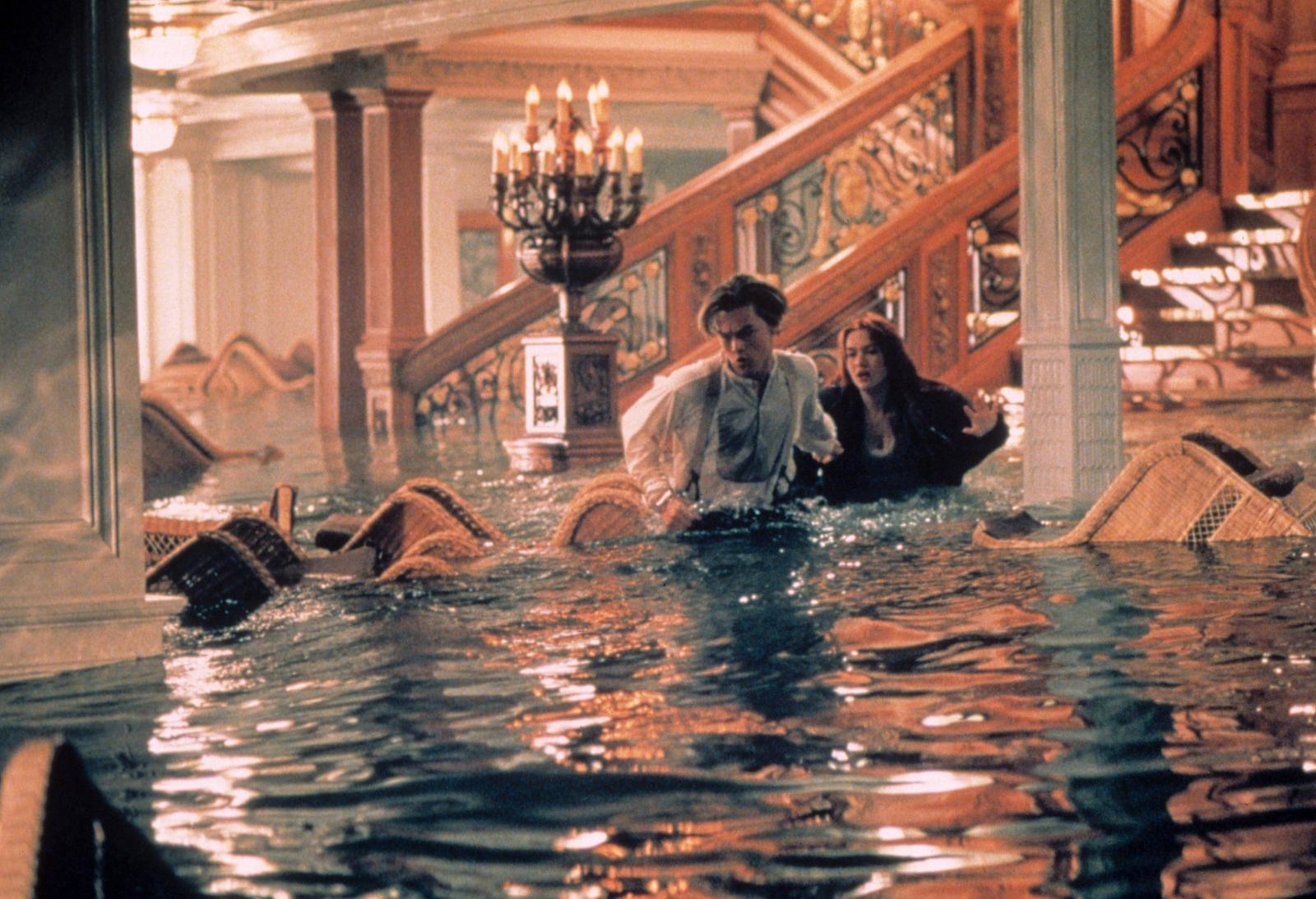5 Reasons Fans Don't Like Cameron's Titanic All That Much

Twenty-five years ago, on November 1, 1997, James Cameron premiered Titanic, a film that literally turned modern cinema upside down and made the whole world fall in love with Kate and Leo. But aside from its acclaimed merits, the masterpiece has its flaws that can't be ignored.
Running Time
Three hours and 14 minutes — 194 minutes — that's the length of James Cameron's Titanic. Even the Avengers finale is 13 minutes shorter, and the Avatar is only 162 minutes long! This may have been justified by the storyline… but then we watch treasure hunters prowling around the seafloor for the first 18 minutes of the movie. Now, did we really need that to proceed with the story?
Besides, most of the film's scenes could have been shortened without any detriment to the plot. Cameron made the iceberg appear in the middle of the movie — can you tell how much time he needed to show the wreck on a grand scale? That's right, one and a half hours. No other disaster movie tortures its viewers for so long!
Questionable Plot Devices
Suicide is a serious problem that's tackled in quite a number of films. There are even organizations that control how suicide is depicted on the screen so that viewers at risk are not triggered to commit it. This was the reason why Netflix removed the scandalous scene from the popular teen series 13 Reasons Why.
But James Cameron has his own view on suicide. Almost right at the beginning of the film, desperate Rose climbs over the railing of Titanic to bid farewell to her terrible life. Then Jack comes up and tries to dissuade the rich girl from her undertaking, while he casually talks about the water temperature and throws a cigarette straight overboard. It seems that the characters couldn't get acquainted without the suicide attempt: this is a powerful device that aims to win the audience's hearts.
Another questionable plot device is the Heart of the Ocean necklace and the treasure hunters looking for it. As the characters driving the story forward, they appear on screen right in the beginning of the film. Rose tells the whole story of Titanic only to make the desperate hunters realize: there's nothing to catch, the world's most expensive diamond is lost. Flashbacks from Jack's life, or at least memories of the ship captain's life, did not prove interesting enough to launch the story. The necklace — here it is, the protagonist!

Flat Characters
Although Cameron's Titanic presents a wide and diverse array of characters, all of them seem to lack depth. The arrogant groom and his lackey are cartoonish villains, Rose is the classical victim, and Jack is an extremely selfless, impeccable "good guy" character. The character set is reminiscent of the victim–persecutor–rescuer triangle, in which people normally swap roles — but in Titanic, the protagonists are stuck with their clichéd selves.
That said, we don't get to know any of them well enough. Why is Rose's mother so cold and cruel — is it really only because of her husband's debts? The legendary "unsinkable Molly", one of the most colorful characters in the movie, is given minimal screen time — and this despite the fact that the real Molly Brown saved people both during the wreck and afterwards. Character motivation in Cameron's movie is simple and straightforward, which is fine — but the audience deserves to know more.
Historical Inaccuracy
A lot can be done in the name of spectacle, but leaving out crucial historical details is bad filmmaking practice. For some reason, James Cameron's Titanic has no mention of the main reason for the deaths of over 1,500 people — that is, the complete lack of response from the nearest ship, the SS Californian, to Titanic's distress calls. Also, when the scale of the disaster became clear, all passengers of the real Titanic were placed in the same lifeboats — no matter what class they had paid for.
There's another blatant move that distorts the image of the real Officer William Murdoch: he never threatened third-class passengers, let alone shoot to scare them off the lifeboats. On the contrary, he saved quite a few lives before he died in the sinking. And he certainly didn't commit suicide — once again, this is unjustified use of Cameron's favorite artistic device.
.jpg)
This is not an exhaustive list of discrepancies between the movie and the actual events, but let's not break the magic completely: we understand that Rose and Jack, as any member of First and Third Class, simply could not have met in the dining hall. And though a passenger with the last name Dawson did exist, his name wasn't Jack.
Romanticizing the Disaster
James Cameron's film immortalizes the incredible romantic story and, only to a lesser extent, the tragic destruction of Titanic. Although the tragedy is given almost 1.5 hours of screen time, we only see the story told from the point of view of the protagonists who happened to meet on the doomed ship. Spurred by the tragic circumstances, their nascent love story gives meaning to what is happening — as well as hope for a future.

However, Rose and Jack are not the only characters that the director has immortalized as romantic heroes of the disaster. The string trio who did their absolute best to distract people from thoughts of impending doom, the elderly married couple cuddling up in bed in their flooded cabin, the caring mother reading a tale of eternal life to her kids… The many touching moments help us forget the ugliness of the disaster, the incompetence of the ship builders and crew, and the human cruelty and hypocrisy. And yes — Jack may well have found a suitable plank or even fit next to Rose so both could survive. But his demise for the sake of his beloved is far more romantic, isn't it?
In spite of all the criticism discussed above, James Cameron's Titanic has greatly influenced modern cinema — perhaps just as much as the sinking of the unsinkable liner had influenced navigation.